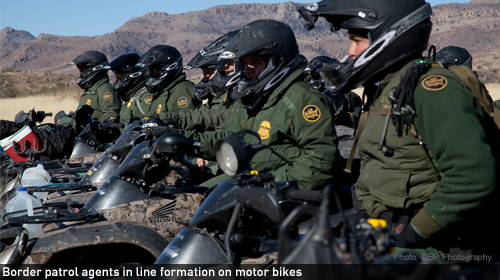
Sixteen-year old Jose Antonio Elena Rodriguez was walking near the U.S.-Mexico border in Nogales, Sonora, Mexico to meet his brother for a late-night snack when he was fatally shot by U.S. Border Patrol agents. An autopsy later showed the body of the teenager had been riddled with 10 bullets that had entered his back and head. Mexican officials also said it seemed there were two agents who shot at least 14 times. More than a year later, the U.S. government has yet to issue a public explanation of what happened, or to release stationary video footage, except to allege that he was part of a group throwing rocks at Border Patrol agents who were up on a hill, behind the 60-foot tall border fence.
This week, the ACLU of New Mexico Regional Center for Border Rights is joining an ACLU delegation and participating as a civil society member in a review of the U.S. record on human rights under the International Covenant on Civil and Political Rights, in Geneva, Switzerland.
A chief concern presented to the U.N. Human Rights Committee has been the rash of lethal use-of-force incidents at the border, including the death of Elena Rodriguez. Since January 2010, at least 28 civilians have died following an encounter with U.S. Customs and Border Protection (CBP)personnel; 27 = died as the result of use of force. These deaths include numerous cases of individuals being shot in the back, across international borders, and in response to alleged rock throwing. One-third of the deaths are of U.S. citizens and one-third of minors, including three boys aged 15, 16 and 17, who were fatally shot while standing on the Mexican side of the border.
CBP’s fundamental lack of oversight, accountability and transparency has created a culture of impunity for agents who violate agency policy or their domestic and international legal obligations. In addition, Border Patrol rejected some core changes to its use-of-force policies recommended by national law-enforcement experts at the Police Executive Research Forum (PERF), including how to respond to rock and vehicular assaults, and has refused to release those recommendations publicly.
In addition to providing testimony at informal and formal briefings, we hand-delivered the Human Rights Committee a letter signed by more than 75 border-wide and national organizations and individuals that demanded, among other key items, that CBP’s use-of-force policy and practice fall in line with the highest professional law enforcement standards and comply with international human rights standards on law enforcement conduct, with particular emphasis on improving accountability and increasing transparency with the general public and directly impacted families and individuals.
It is our hope that international pressures will result in closure for the family of Elena Rodriguez and that improved use-of-force policies and training will prevent further unnecessary deaths.
Read more about ACLU’s use-of-force recommendations for CBP, more information about the ACLU delegation to the ICCPR review and the ACLU shadow report, and a live-webcast of the ICCPR
Learn more about customs and border enforcement and other civil liberty issues: Sign up for breaking news alerts, follow us on Twitter, and like us on Facebook.

